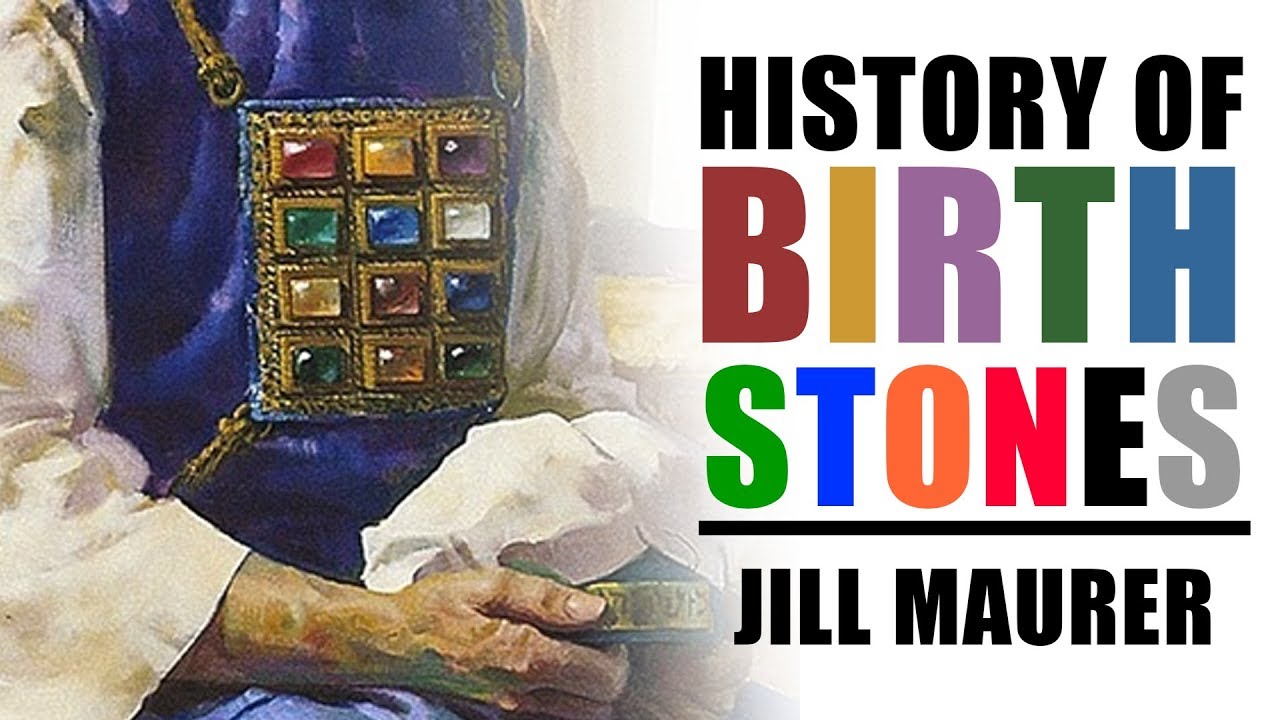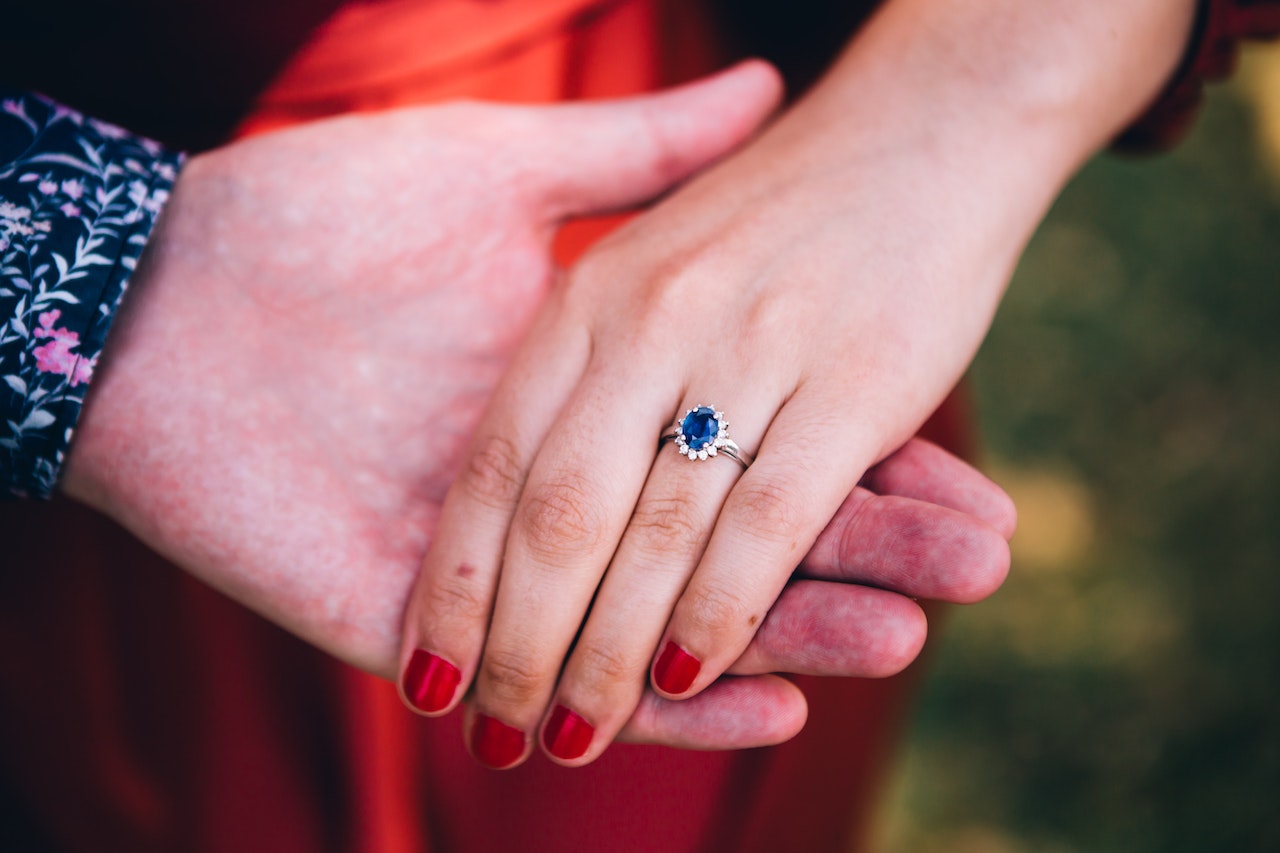Birthstoneshave captivated the human imagination for centuries, and their history is a rich tapestry of folklore, mythology, and culture. Birthstones are not only beautiful, but they also have significant symbolism and meaning.
Each birthstone is associated with a particular month and is believed to have unique properties that can affect its wearer in different ways. In this article, we will take a deeper look at the symbolism and meaning of birthstones and explore how they can be used in our daily lives.
From ancient times to the present day, people have cherished these precious gems and believed in their mystical powers.
In this article, we will explore what is the history of birthstones, from their origins to their significance in modern times.
Birthstones have a long and fascinating history, datingback to ancient civilizations that believed certain gemstoneshad powerful properties and were associated with specific months of the year.
Over time, birthstones have become an integral part of many cultural and spiritual practices, and continue to be popular today for their beauty and symbolism.
What Is The History Of Birthstones? Ancient Beliefs And Practices
The concept of birthstones dates back to ancient civilizations, such as the Babylonians, who believed that gemstones had magical powers and were associated with certain astrological signs.
They would wear a different gemstone each month, believing that it would bring them good luck and protect them from harm.
The ancient Egyptians also believed in the healing powers of gemstones, and many of their burial rituals included the use of precious stones. In fact, the first recorded use of birthstones can be traced back to the breastplate of Aaron, which is described in the Old Testament.
The ancient Egyptians also believed in the power of gemstones and used them in their religious practices.
Many of their burial rituals involved the use of precious stones, such as lapis lazuliand turquoise. They also believed that gemstones had healing powers and would often wear them as talismans or amulets.
The use of birthstones can also be found in the Old Testament of the Bible. In the book of Exodus, the breastplate of Aaron, which was worn by the high priest of Israel, was adorned with twelve gemstones, each one representing one of the twelve tribes of Israel.
Today, birthstones continue to be a popular tradition, and many people still believe in their mystical powers. While the significance of birthstones has evolved over the centuries, their enduring appeal remains unchanged.
Whether worn for their perceived mystical properties or simply as a beautiful adornment, birthstones continue to captivate the human imagination and hold a special place in our hearts.
Birthstones In Classical Mythology - The Influence Of The Greeks And Romans
In classical mythology, gemstones were associated with the gods and goddesses of Greece and Rome. For example, the Greeks believed that amethystwas the stone of Dionysus, the god of wine, and that it could prevent drunkenness.
Similarly, the Romans believed that emeralds were associated with Venus, the goddess of love, and that they could protect against infidelity.
The Greeks believed that amethyst was the stone of Dionysus, the god of wine. It was believed that the gemstone could prevent drunkenness and promote a clear head.
In addition to its sobering effects, amethyst was also believed to have a calming effect on the mind and to promote inner peace.
The Romans associated emeralds with Venus, the goddess of love. The gemstone was believed to have the power to protect against infidelity and to promote fidelity in marriage.
It was also thought to have a calming effect on emotions and to promote a sense of balance and harmony in relationships.
In addition to their association with specific gods and goddesses, gemstones were also believed to have healing properties. For example, the Greeks believed that turquoise had the power to heal the body and the mind.
They also believed that garnets could be used to promote good healthand to ward off illness.
Birthstones In Medieval Times - Symbolism And Allegory
During the Middle Ages, birthstones took on a more symbolic meaning. They were often associated with the twelve apostles and were believed to have healing powers.
In addition, gemstones were often used in allegorical literature, such as Dante's Divine Comedy, where they were used to represent different virtues and vices.
While the use of birthstones in medieval times was largely symbolic and allegorical, there was still a belief in their mystical properties. Gemstones were often used in talismans and amulets and were believed to protect against evil spirits and negative energy.
Today, the use of birthstones continues to be a popular tradition, and many people still believe in their mystical properties. While the significance of birthstones has evolved over the centuries, their enduring appeal remains unchanged.
Whether worn for their perceived mystical properties or simply as a beautiful adornment, birthstones continue to captivate the human imagination and hold a special place in our hearts.

History Of Birthstones | Jill Maurer
Birthstones In Modern Times - Commercialization And Popular Culture
In the modern era, birthstones have become a popular gift item and are often given as birthday presents.
The concept of birthstones has also been commercialized, and many jewelrycompanies now offer birthstone collections. In addition, birthstones have become a part of popular culture, appearing in movies, TV shows, and even video games.
The concept of birthstones has also been popularized in popular culture, appearing in books, movies, and television shows. For example, in J.K. Rowling's Harry Potter series, each Hogwarts house is associated with a specific gemstone, with Gryffindor being associated with rubies, Slytherin with emeralds, Hufflepuff with topaz, and Ravenclaw with sapphires.
Similarly, in the popular young adult novel series The Mortal Instruments by Cassandra Clare, a magical race of humans called the Shadowhunters wears rune stones that are associated with specific powers and abilities.
In addition to their appearance in popular culture, birthstones have also become increasingly personalized. Many people choose to wear jewelry that features the birthstones of their loved ones, such as their children or grandchildren.
This personalized approach to birthstones has made them even more meaningful and cherished by individuals and families.
People Also Ask
What Are The Traditional Birthstones For Each Month?
Traditional birthstones vary by culture and time period, but the modern Western list includes 12 gemstones, one for each month.
How Did Birthstones Become Commercialized In Modern Times?
Birthstones have become increasingly commercialized through the marketing of birthstone-themed jewelry and gift items.
What Role Did Birthstones Play In Ancient Egyptian Culture?
Birthstones were believed to have protective and healing properties in ancient Egyptian culture and were often used in amulets and talismans.
What Is The Significance Of Birthstones In Hinduism?
Birthstones have a significant role in Hinduism and are believed to have mystical properties that can bring good fortune and protection.
How Has The Symbolism Of Birthstones Changed Over Time?
The symbolism of birthstones has changed over time and varies by culture and time period, reflecting changing beliefs and values.
Conclusion
What is the history of birthstones? It is a fascinating journey through time, from ancient beliefs and practices to modern commercialization and popular culture. While the significance of birthstones has evolved over the centuries, their enduring appeal remains unchanged.
Whether worn for their perceived mystical powers or simply as a beautiful adornment, birthstones continue to captivate the human imagination and hold a special place in our hearts.
From ancient beliefs in the power of gemstones to medieval allegories and modern commercialization, birthstones have held significant meaning and value for centuries.
Whether you believe in the mystical properties of birthstones or simply appreciate their beauty, it's important to understand their history and significance.
By learning about the history of birthstones and how to charge and cleanse them, we can deepen our connection to these precious stones and tap into their potential for healing and spiritual growth.
